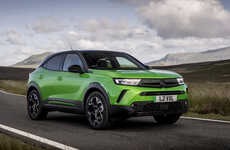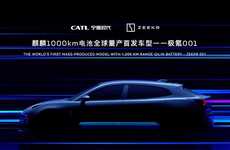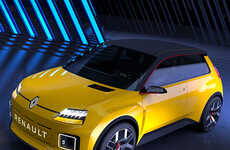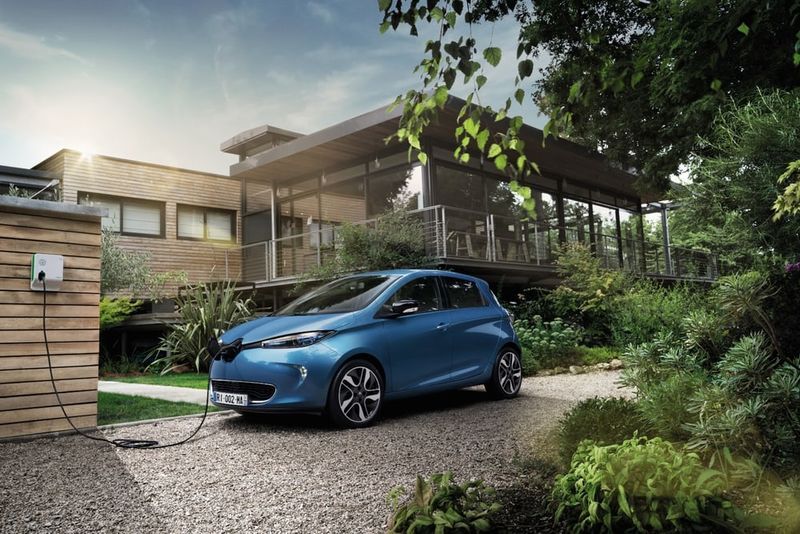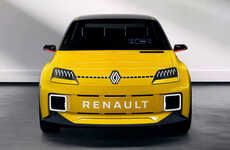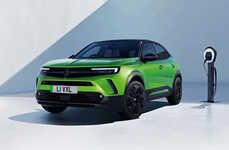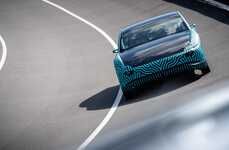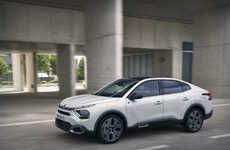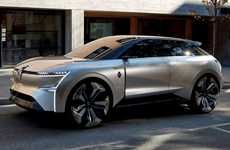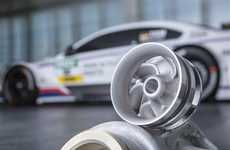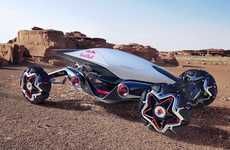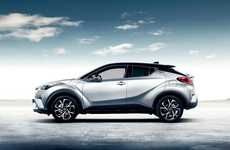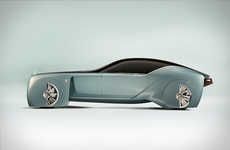
The Renault ZOE Offers Improved Range and Power
Rahul Kalvapalle — September 30, 2016 — Autos
References: press.renault & newatlas
The latest and greatest version of the Renault ZOE is a truly innovative and smartly engineered all-electric car that offers substantially improved range compared to its already impressive successors. While the old 2012 version of the Renault ZOE promised a driving range of 209 km, the new version offers a significant improvement at 400 km.
The reason behind this all-electric car's improved range has to do with a high-tech Z.E. battery pack that features slicker chemical engineering insofar as the lithium-ion cells are concerned, with the end result being greater energy output. The battery is the same size as previous versions but can now offer 41 kilowatt-hours of energy.
Set to be made available for sale in the first week of October, the Renault ZOE is a great example of smart chemical engineering enhancing the capability of all-electric cars.
The reason behind this all-electric car's improved range has to do with a high-tech Z.E. battery pack that features slicker chemical engineering insofar as the lithium-ion cells are concerned, with the end result being greater energy output. The battery is the same size as previous versions but can now offer 41 kilowatt-hours of energy.
Set to be made available for sale in the first week of October, the Renault ZOE is a great example of smart chemical engineering enhancing the capability of all-electric cars.
Trend Themes
1. Improved Range - The increased driving range of the Renault ZOE demonstrates the trend towards improving the range of all-electric cars.
2. High-tech Batteries - The advanced Z.E. battery pack showcases the trend of using innovative battery technology to enhance the performance of electric vehicles.
3. Smart Chemical Engineering - The use of advanced chemical engineering in the Renault ZOE highlights the trend of utilizing smart engineering techniques to optimize the capabilities of electric cars.
Industry Implications
1. Automotive - The automotive industry can leverage the trend of improved range to develop electric vehicles that offer greater driving distances, appealing to a wider consumer base.
2. Battery Technology - The battery industry can capitalize on the trend of high-tech batteries by developing innovative solutions to improve the energy output and efficiency of electric vehicle batteries.
3. Chemical Engineering - The chemical engineering industry has an opportunity to contribute to the disruptive innovation in electric cars by developing advanced materials and techniques to enhance the performance of electric vehicle batteries.
4.5
Score
Popularity
Activity
Freshness


